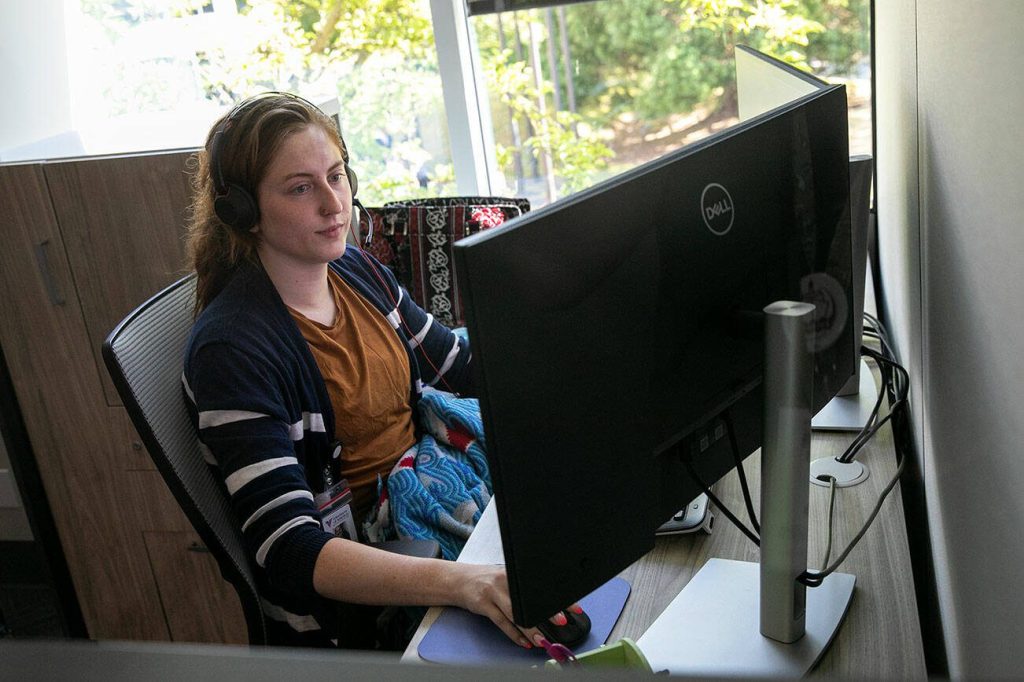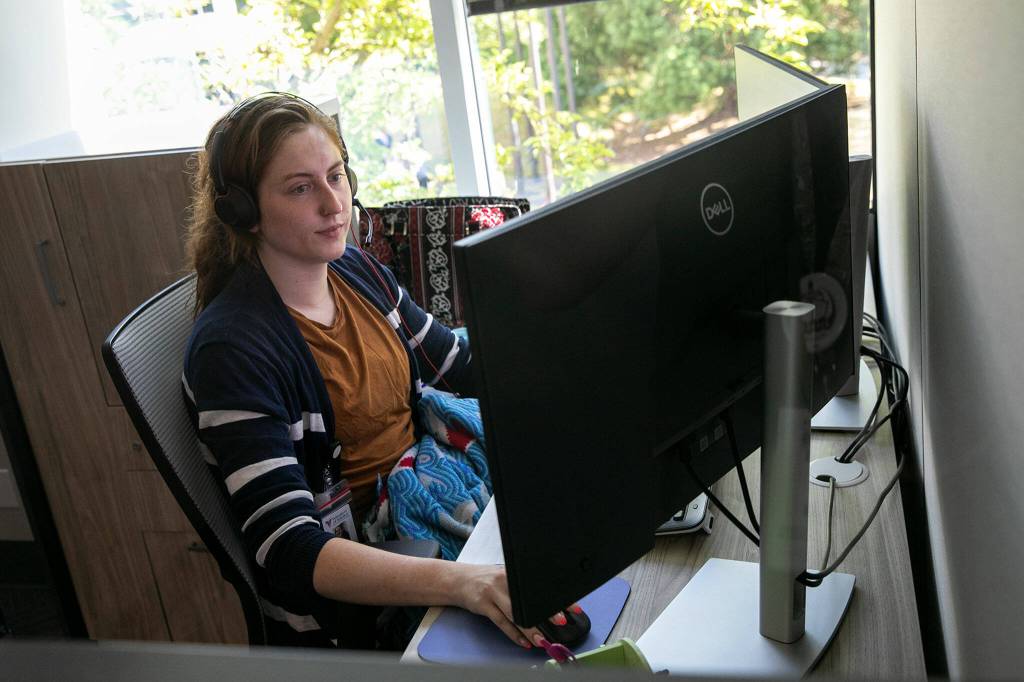Editorial: Everett 988 center proves worth of its Native focus
Published 1:30 am Thursday, November 2, 2023


By The Herald Editorial Board
It’s been about a year and a half since the national Suicide and Crisis Line simplified its phone number from a 1-800 number to an easier remembered and dialed three digits: 988.
In its first year of operation nationwide, with call centers throughout the nation — including one in Everett run by the Volunteers of America-Western Washington — some 5 million contacts by voice, chat and text were made to the 988 line, a 33 percent increase over the previous year, according to figures gathered by KFF. Locally, the Everett call center receives more than 3,700 calls each month, a 40 percent increase from before the change to 988 was made.
The need for that outreach, which can connect callers with immediate counseling and referrals for further behavioral health services, remains clear. Suicide persists as one of the leading causes of death in the United States, increasing from about 46,000 deaths in 2020 to 49,449 in 2022, according to the Centers for Disease Control and Prevention.
Most striking is that the nation’s American Indian and Alaskan Native populations experience disproportionate rates of suicide. For 2021, according to the CDC, American Indian and Alaskan Native suicides led all other racial and ethnic groups with 28.1 deaths for every 100,000 people. Non-Hispanic whites followed with 17.4 deaths per 100,000.
More recent data shows some better news, with suicide deaths dropping 6.1 percent in 2022 for Indigenous Americans; and a decrease of 8.4 percent generally among those ages 10 to 24 years old.
While the 988 program was part of federal legislation, it was left to the states to decide how to implement and fund the work; and Washington was one of four states that adopted legislation to fund extended 988 services through a tax on phone lines, including cell and land lines. Washington state phone customers now pay a fee of 40 cents a month on their phone bills.
That additional funding has help expand counseling staffs and services, such as those at the 988 Suicide and Crisis Line center in Everett, said Levi Van Dyke, executive director of behavioral services for the VOAWW.
Ninety percent of the time, Van Dyke said, the center is able to respond and resolve the needs of a caller and refer them to further care, rather than refer calls to 911. But the additional funding is expanding what it can offer.
“Now there are downstream pieces in the crisis continuum making sure that we have teams that can respond to the community,” he said, during a briefing and visit this week with U.S. Rep. Rick Larsen, D-Wash.
And those expanded services are immediately clear for those calling into the VOA’s 988 center. A phone tree offers callers specific services at the start, offering them connections to a Veteran’s Crisis Line, a Spanish-language line, an LGBTQ+ Youth crisis line and its Native & Strong Lifeline, which connects Indigenous callers with culturally relevant counseling and mental health support, importantly from other Native American or Alaska Native counselors.
“We have a full Native staff, and that’s why other Native people are willing to call us,” said Rochelle Hamilton, tribal services manager for VOAWW. Along with four to six weeks of training for all counselors, the Native & Strong counselors receive additional training.
Native & Strong launched a year ago with about 16 counselors representing tribes in Washington state, but also across the nation. As with other 988 counselors, some work from the Everett center; others work remotely from across the country. That staff has since grown to 23, all who identify the tribes each is affiliated with or an enrolled member of at the start of the call. About 200 counselors in total staff the VOAWW’s 988 service.
That tribal connection, even when not from the same tribe, can provide comfort in sharing stories and concerns. It can be exhausting, she said, to explain the complexities and complications experienced by Native people to someone not of that heritage.
“It’s just comforting to know that the counselors have been through some of that historical and inter-generational trauma,” Hamilton said. “So it’s something that we have in common even without being from the same tribe.”
There are shared traumas and experiences common to the families of many American Indians and Alaskan Natives, in particular the practice of taking children from families and placing them in boarding schools often far from home, a practice that continued into the mid-20th century in the U.S. and in Canada through the 1970s.
That practice created trauma that was passed down through generations. Hamilton’s grandparents on her father’s side were boarding school survivors, she said, taken from their Hidatsa homes, parents and family and forced to speak English and forbidden from speaking their native language.
“It wasn’t very long ago, and that trauma was passed along to my father,” she said.
As with the general 988 line callers are connected with behavioral health services, substance use disorder referrals or mental health counseling and treatment, but the range of counseling and referral also include services tied to their heritage.
“What we are also getting are people seeking native connection. So native people looking for resources about traditional and cultural activities and events, where they can be connected to other native people in their area,” she said. “When people do these cultural things, they connect with their traditions. That’s another protective factor.”
Like the general 988 calls, the Native & Strong Lifeline has seen increased use, even without an advertising or public relation campaign. Expecting some 3,000 calls in its first year, Hamilton said, it took more than 4,000 calls.
Work remains to strengthen the program. Currently, when calls come in, the option to talk with an Indigenous counselor is only available to those within Washington area codes. A Native person calling from inside the state but with an area code from outside the state still connects with a 988 counselor but is not connected to the Native & Strong line. Technology may eventually use geo-routing to allow for all calls from within the state to offer the Native & Strong option.
As well, Larsen said, he’s backing federal legislation — the 988 Reimplementation Act — that would strengthen funding for the service, provide for community-based and mobile crisis teams, fund training and scholarship opportunities and launch a nationwide suicide prevention awareness campaign to increase the visibility of the 988 program.
Native & Strong, included in the state’s 988 legislation by Rep. Tina Orwell, D-Des Moines, is the first of its kind in the nation, and should serve as a model for similar programs in other states. Hamilton has testified in favor of similar legislation in California and talked with tribes in the U.S. and Canada about the Native & Strong 988 program.
“Because of that, (lawmakers) thought it would be good for us to pilot something to see if Native people would actually call this line and use it as a resource,” Hamilton said. “And we’re finding that they are.”




